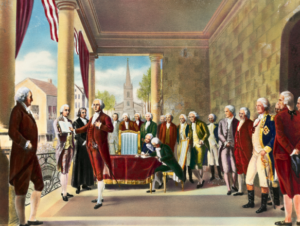The Future of Elections: A Historical Perspective
As we look towards the future of elections in the United States, it’s valuable to take a step back and examine the historical context that has shaped our political landscape. The recent statement by Socrates regarding the potential for this election to be the last raises important questions about the direction of our nation.
When we delve into the history of elections in America, we can see a pattern of evolution and conflict that sheds light on the challenges we face today. From the inaugural election of George Washington in 1789 to the divisive politics of Thomas Jefferson and John Adams, the foundation of our democracy has been built upon a system of checks and balances.
Article II, Section 1 of the Constitution outlined the original method of electing the president and vice president, which underwent changes over time to address issues of political philosophies and party tensions. The election of 1804 marked a significant shift with the introduction of separate ballots for president and vice president, signaling a move towards a more nuanced electoral process.
Fast forward to the 2020 election, which was characterized by intense polarization and accusations of manipulation. This election was seen by some as a coup, reminiscent of the power struggles of the past. The animosity between political factions, such as the Federalists and the Democratic-Republican Party, mirrors the divisions we see today.
Looking at historical elections, such as the contests between James Madison and DeWitt Clinton, or Andrew Jackson and Henry Clay, we can draw parallels to the current political climate. The rise and fall of political parties throughout history serve as a warning of the consequences of unchecked power and ideological extremism.
Today, as we witness the struggles within the Democratic Party and the push for centralized control, we are reminded of the dangers of abandoning the principles of democracy. The decline of the Democrats in both the Senate and House reflects a broader trend towards polarization and oppression.
Ultimately, the lessons of history remind us that no civilization can thrive when the majority seeks to oppress the minority. The words of Abraham Lincoln, “A house divided against itself cannot stand,” are as relevant today as they were in his time. It is up to us to learn from the past and strive towards a future where unity and democracy prevail.
At Extreme Investor Network, we believe in providing insights that go beyond the surface to reveal the underlying trends and patterns that shape our world. By understanding the historical context of elections, we can better navigate the challenges of the present and build a stronger foundation for the future.

